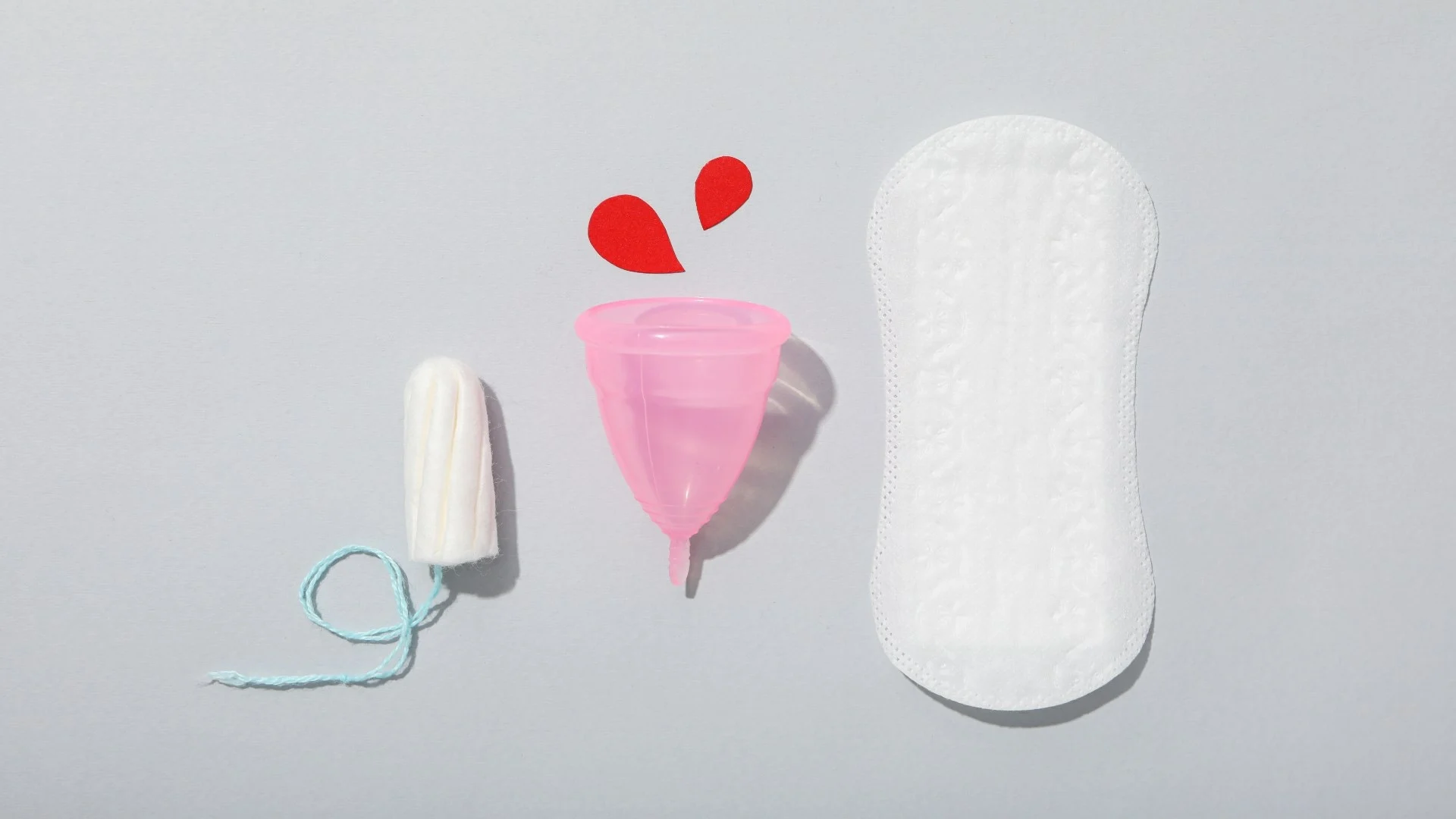Mental Health
Premenstrual Dysphoric Disorder (PMDD) Therapies

Discover effective premenstrual dysphoric disorder therapies to manage mood swings and anxiety. Learn how to restore balance and improve mental well-being.
Living with Premenstrual Dysphoric Disorder (PMDD) can be overwhelming, affecting your mood, relationships, and daily life. You’re not alone, and you’re not imagining it. There are treatment options that work, from therapy and medications to lifestyle changes that bring real relief. At The Edge Treatment Center, we’re here to listen, support, and guide you toward balance and stability.
At The Edge Treatment Center, we understand the impact of PMDD, especially for those also struggling with addiction or mental health issues. Support and relief are possible with the proper care.
Definition and Differentiation From PMS
PMDD is a severe and debilitating form of PMS that significantly impacts daily life, requiring distinct diagnosis and Premenstrual dysphoric disorder therapies. Premenstrual Dysphoric Disorder (PMDD) is a severe form of premenstrual syndrome (PMS) that substantially affects a person’s emotional, mental, and physical well-being.
While both PMDD and PMS involve hormonal fluctuations during the menstrual cycle, PMDD is characterized by extreme mood disturbances that interfere with daily life. PMS symptoms are often mild and manageable, whereas PMDD symptoms are severe enough to cause disruptions in work, relationships, and overall quality of life. Unlike PMS, PMDD is classified as a mental health disorder in the DSM-5 (Diagnostic and Statistical Manual of Mental Disorders).
Common Symptoms and Their Severity
PMDD symptoms can be both emotional and physical, often leading to significant distress and impairment in everyday activities.
PMDD symptoms typically occur in the luteal phase (the two weeks before menstruation) and subside once the period begins. Common symptoms include:
Emotional and Psychological Symptoms: Intense mood swings, severe depression, anxiety, irritability, feelings of hopelessness, suicidal thoughts, and difficulty concentrating.
Physical Symptoms include fatigue, bloating, breast tenderness, headaches, joint or muscle pain, and changes in sleep and appetite.
Behavioral Symptoms: Social withdrawal, increased sensitivity to rejection, and difficulty managing daily responsibilities.
These symptoms are more severe than those seen in PMS and can lead to significant impairment in personal and professional life.

Prevalence and Demographic Considerations
PMDD affects a specific subset of menstruating individuals, with risk factors including genetic, hormonal, and mental health predispositions. PMDD affects approximately 3-8% of menstruating individuals.
It is most commonly diagnosed in individuals in their late 20s to early 40s, though symptoms may begin earlier. Those with a history of depression, anxiety, or other mood disorders are at higher risk of developing PMDD. Genetic, hormonal, and environmental factors all contribute to its onset.
Comprehensive Treatment Approaches
PMDD management requires a multi-faceted approach, including lifestyle modifications, medical treatments, and alternative therapies.
Lifestyle Modifications
Simple lifestyle adjustments can play a crucial role in alleviating PMDD symptoms and improving overall well-being.
Dietary Changes
Nutritional choices can play a crucial role in managing PMDD symptoms. Recommended dietary changes include:
Increasing intake of protein and complex carbohydrates to stabilize blood sugar levels and reduce mood swings.
Reducing sugar and salt to minimize bloating and fluid retention.
Limiting caffeine and alcohol as they can exacerbate anxiety, irritability, and sleep disturbances.
Increasing omega-3 fatty acids (found in fish, flaxseeds, and walnuts) to support mood regulation.
Regular Physical Activity
Exercise is a natural way to combat PMDD symptoms by reducing stress, enhancing mood, and promoting better sleep. Regular exercise, such as walking, yoga, or strength training, can help alleviate symptoms of PMDD. Physical activity:
Enhances mood by increasing endorphin levels.
Reduces stress and anxiety.
Improves sleep quality and overall energy levels.
Stress Management Techniques
Managing stress effectively can help reduce the severity of PMDD symptoms and promote emotional stability. Since stress can intensify PMDD symptoms, relaxation, and mindfulness techniques can be beneficial. These include:
Meditation and Deep Breathing Exercises to promote calmness.
Yoga and Stretching Routines to release tension.
Journaling and Cognitive Exercises to track mood patterns and triggers.
Pharmacological Treatments
Medications can provide significant relief for individuals with moderate to severe PMDD symptoms.
Selective Serotonin Reuptake Inhibitors (SSRIs)
SSRIs are a first-line treatment option for PMDD, helping to regulate serotonin levels and improve mood stability. SSRIs, such as fluoxetine, sertraline, and paroxetine, are commonly prescribed to manage mood-related symptoms of PMDD. These medications:
Help regulate serotonin levels in the brain.
Reduce anxiety, depression, and mood swings.
It can be taken continuously or during the luteal phase only, depending on the severity of symptoms.
Hormonal Therapies
Hormonal treatments aim to stabilize fluctuations that contribute to PMDD symptoms. Oral contraceptives, especially those containing drospirenone and ethinyl estradiol, can help regulate hormonal fluctuations that contribute to PMDD symptoms. These contraceptives:
Suppress ovulation, which stabilizes hormonal changes.
Reduce emotional and physical PMDD symptoms.
It may not be suitable for everyone, particularly those with contraindications to hormonal therapy.
GnRH Agonists
GnRH agonists are reserved for severe cases of PMDD that do not respond to conventional treatments. For individuals with severe PMDD that are resistant to other therapies, gonadotropin-releasing hormone (GnRH) agonists may be considered. These medications:
Temporarily induce a menopausal state by suppressing estrogen production.
They are a last-resort treatment due to potential side effects, such as bone density loss.
Psychotherapeutic Interventions
Psychotherapy can provide essential coping strategies to help individuals manage PMDD symptoms effectively.

Cognitive Behavioral Therapy (CBT)
CBT is a proven therapy that helps individuals develop practical strategies to handle emotional and behavioral challenges. CBT is a structured, evidence-based therapy that helps individuals manage PMDD by:
Identifying negative thought patterns and replacing them with healthier perspectives.
Developing coping strategies to reduce emotional distress.
Enhancing emotional resilience through behavioral changes.
Counseling and Support Groups
Emotional support from professionals and peers can significantly improve PMDD management. Speaking with a therapist or joining a support group can provide emotional validation and practical coping strategies. Support groups also allow individuals to share experiences, reducing feelings of isolation and helplessness.
Acupuncture
Acupuncture is a holistic therapy that may help alleviate PMDD symptoms by promoting relaxation and hormonal balance.
Reducing stress and anxiety levels.
Promoting hormonal balance.
Improving overall well-being. While research is ongoing, some individuals report symptom relief through regular acupuncture sessions.
Herbal Supplements
Certain herbal supplements have been studied for their potential role in managing PMDD symptoms. Certain herbal supplements have shown promise in managing PMDD symptoms:
Chasteberry (Vitex agnus-castus): May help regulate hormone levels and reduce mood swings.
Calcium and Magnesium Support neurotransmitter function and can help alleviate physical symptoms like bloating and fatigue.
St. John’s Wort: Sometimes used for mood disorders but should be taken with caution, as it can interact with other medications, especially mood regulators.
Black Cohosh: Often used to manage menopausal symptoms, black cohosh has been explored for PMS and PMDD relief. However, evidence supporting its effectiveness for PMDD is limited, and further research is necessary.
While these supplements show promise, individual responses can vary, and research is ongoing. It's essential to consult with a healthcare provider before starting any new supplement regimen, especially if you're taking other medications or have underlying health conditions.

We’re Here To Help You Find Your Way
Would you like more information about mental health or drug addiction? Reach out today.
Common Questions
What Distinguishes PMDD From PMS?
While both involve premenstrual symptoms, PMDD is much more severe, with intense emotional and physical symptoms that significantly impact daily life. Unlike PMS, PMDD is classified as a mental health disorder and often requires premenstrual dysphoric disorder therapies for effective management.
How Are SSRIs Used in Treating PMDD?
SSRIs like sertraline and fluoxetine are commonly prescribed as part of premenstrual dysphoric disorder therapies to manage mood-related symptoms. They can be taken continuously or only during the luteal phase, helping regulate serotonin levels and reducing depression, anxiety, and irritability associated with PMDD.
Can Lifestyle Changes Alone Effectively Manage PMDD?
Lifestyle modifications, such as a balanced diet, regular exercise, and stress management, can help alleviate symptoms for some individuals. However, for many, lifestyle changes work best when combined with premenstrual dysphoric disorder therapies, including medication, treatment, or other medical interventions.
What Role Does Cognitive Behavioral Therapy (CBT) Play in PMDD Treatment?
CBT is recognized as an effective therapeutic approach for managing PMDD symptoms. It assists individuals in identifying and modifying negative thought patterns, thereby providing coping strategies to manage emotional distress, enhancing self-awareness, and fostering healthier responses to mood changes associated with PMDD.
How Does The Edge Treatment Center Support Individuals with PMDD?
At The Edge Treatment Center, we provide premenstrual dysphoric disorder therapies through personalized treatment plans that address both PMDD and co-occurring conditions like anxiety, depression, or addiction. Our expert team integrates medical and holistic approaches to restore balance and improve overall mental well-being.
The Edge Treatment Center’s Approach
The Edge Treatment Center offers a comprehensive and compassionate approach to managing PMDD. It integrates medical and holistic therapies to improve overall well-being.
Personalized Treatment Plans
Every individual experiences PMDD differently, which is why our treatment plans are tailored to each person’s unique needs. Our approach includes:
A thorough assessment of symptoms, medical history, and mental health conditions.
Combining medical interventions, therapy, and holistic treatments ensures comprehensive care.
Regular monitoring and adjustments to the treatment plan based on progress and individual response.
Support for Co-Occurring Conditions
Many individuals with PMDD also struggle with co-occurring conditions such as addiction, anxiety, and depression. At The Edge Treatment Center, we provide:
Dual diagnosis treatment to address both PMDD and any underlying mental health disorders.
Substance use disorder programs for those dealing with addiction alongside PMDD.
Therapy and counseling are designed to help manage emotional distress and promote healing.
Comprehensive Care Team
Our team consists of experienced medical professionals, therapists, and support staff dedicated to providing compassionate and effective care. This includes:
Physicians and psychiatrists who specialize in women’s health and mental wellness.
Licensed therapists trained in cognitive behavioral therapy (CBT) and other psychotherapeutic interventions.
Support staff can assist individuals throughout their recovery journey, offering guidance and encouragement.

We’ll Lead You to New Heights
Do you have more questions about mental health or drug addiction? Reach out.
Struggling with PMDD Symptoms? We Can Help

Premenstrual dysphoric disorder can feel overwhelming, but with the proper support, recovery is possible. At The Edge Treatment Center, we offer personalized premenstrual dysphoric disorder therapies to help you regain balance and improve your mental well-being.
Whether you're dealing with severe mood swings, co-occurring conditions, or struggling to find the proper treatment, our compassionate team is here to help. Contact us today to start your journey toward healing.

We’re Here To Help You Find Your Way
If you or a loved one is struggling with addiction, there is hope. Our team can guide you on your journey to recovery. Call us today.
Written by
The Edge Treatment Center
Reviewed by
 Jeremy Arzt
Jeremy ArztChief Clinical Officer
Mental Health
November 22, 2025
